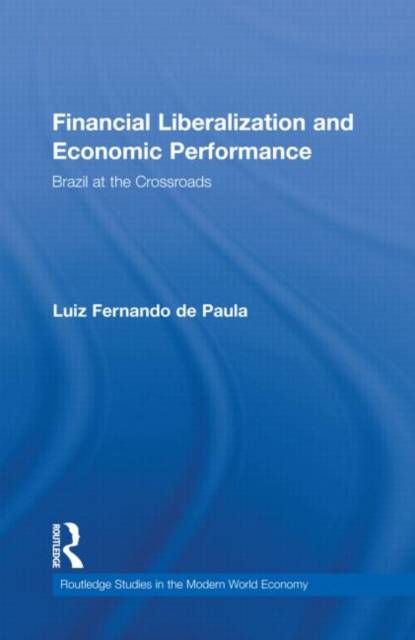
- Retrait gratuit dans votre magasin Club
- 7.000.000 titres dans notre catalogue
- Payer en toute sécurité
- Toujours un magasin près de chez vous
- Retrait gratuit dans votre magasin Club
- 7.000.0000 titres dans notre catalogue
- Payer en toute sécurité
- Toujours un magasin près de chez vous
Description
Since the beginning of the 1990s, Brazil has followed a pattern of economic development inspired by Washington Consensus. This framework includes a set of liberalising and market friendly policies such as privatisation, trade liberalization, stimulus to foreign direct investment, tax reform, and social security reforms.
This book assesses the determinants and impacts of financial liberalisation in Brazil considering its two dimensions: the opening up of the balance of payments capital account, and the penetration by foreign bank of the domestic banking sector. The author combines theoretical and empirical analyses. Some make use of mathematical models and/or statistical techniques; however, they are only used when they are strictly necessary to the analysis.
Spécifications
Parties prenantes
- Auteur(s) :
- Editeur:
Contenu
- Nombre de pages :
- 272
- Langue:
- Anglais
- Collection :
- Tome:
- n° 85
Caractéristiques
- EAN:
- 9780415460095
- Date de parution :
- 10-11-10
- Format:
- Livre relié
- Format numérique:
- Genaaid
- Dimensions :
- 156 mm x 234 mm
- Poids :
- 557 g

Les avis
Nous publions uniquement les avis qui respectent les conditions requises. Consultez nos conditions pour les avis.






